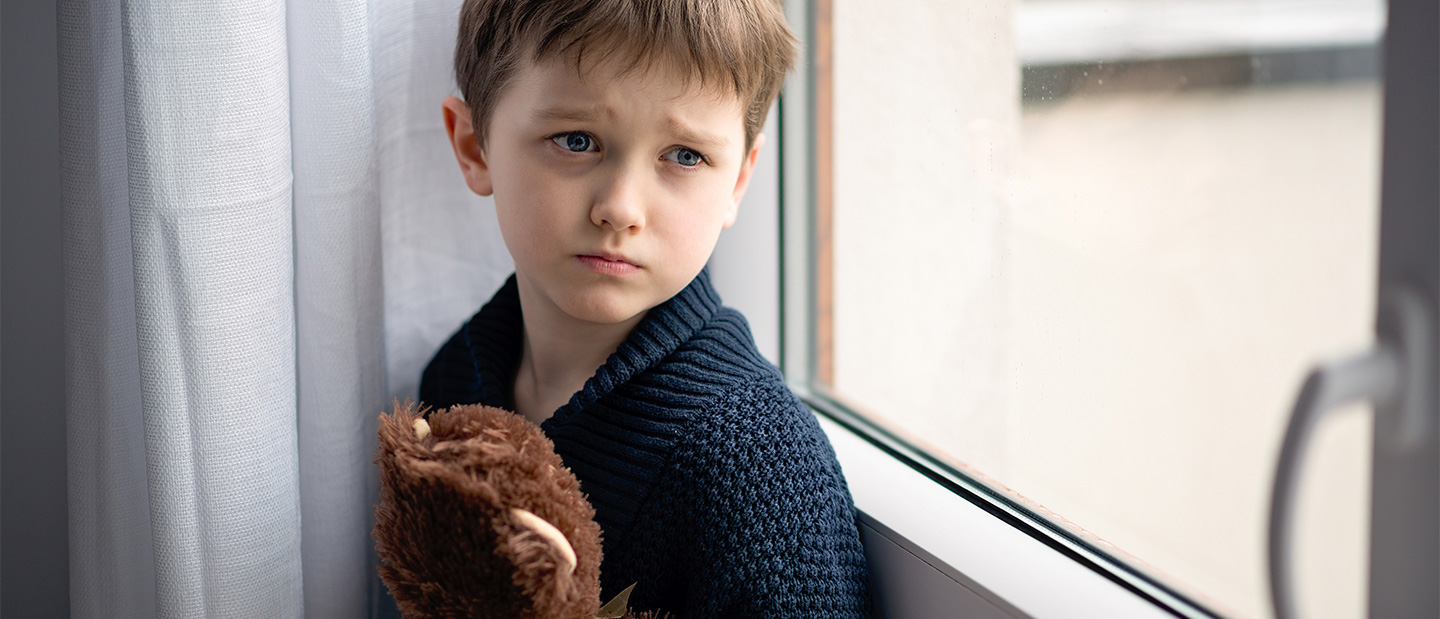What Do We Know About Depression in Preschoolers?
Based on a webinar given February 9, 2016, by Foundation-supported investigator Deanna Barch, Ph.D., Professor of Psychiatry at Washington University, St. Louis
Depression is a problem often associated with adults, but young children can have the condition, too. In recent years, researchers have begun to understand how depression manifests in preschoolers, what it does to the brain, and how it may affect their future mental health.
Studies have demonstrated that in many ways depressed preschoolers show the typical symptoms and signs of major depression. These signs include an increased sensitivity to experiencing guilt, experiencing a loss of joy, showing extreme fatigue, and being sad and tearful. Importantly, when a child has depression, it affects his or her ability to function in everyday life by decreasing their motivation to play and engage with peers and by disrupting their sleep, appetite and energy level.
Young children are in a fluid developmental stage, so a natural question is whether an early-onset depression is only a temporary phase that kids will grow out of, or whether it is a really condition similar to what older children, adolescents or adults with depression experience.
“One of the things we know now is that depression at a preschool age is actually a strong predictor of children continuing to have depression and meeting the criteria for full-blown depression at school age,” says Deanna Barch, Ph.D., Professor of Psychological & Brain Sciences and Psychiatry at the Washington University School of Medicine in St. Louis, and a NARSAD grantee in 1995, 2000, 2006, and 2013.
Dr. Barch and her colleagues are using brain imaging to study depressed young people. The scanning process has been tailored to kids, who need shorter scan times and ways to keep them entertained. Dr. Barch and her colleagues, including Dr. Joan Luby, also of Washington University, have been trying to find out if children with a history of preschool depression show changes in brain function and structure similar to those seen in adults with depression, and whether early psychiatric intervention can reverse this process.
The brain in depression
Most of what we know about depression comes from research in adults and adolescents. It points to two structures known as the amygdala and the striatum, which process emotions and frontal areas of the brain involved in emotional control. Studies show that compared with healthy adults, areas of emotional processing in depressed adults show heightened activity, while the emotion-regulating regions show reduced activity. In addition, communication between these two systems goes awry, preventing the control regions from keeping emotional responses in check.
In 2013, Dr. Barch and her team conducted a study on about 300 preschoolers aged 3 to 6, some of whom had symptoms of depression, and followed them for six years. By the time the children reached age 8, the researchers started taking brain scans as well.
They found that children who had exhibited depression symptoms in preschool years showed the same pattern of brain activity as have been found in depressed adults. Emotion processing regions showed heightened activity in response to negative information. Regions involved in emotional control showed decreased activity.
Scars or early signs?
One key question addressed by Dr. Barch and colleagues was: Which comes first, the depression or the brain changes observed on the scans?
The team’s further studies have indicated that at least some of the observed brain changes are present in kids who don’t have depression but do have a family history of depression. This suggests that structural changes in the brain precede depression and thus are signs of high risk for developing depression. Knowing this, the researchers are hopeful that they can develop psychological interventions for young children at risk to thwart the development of depression later.
Ideally, the intervention has to happen early on to place the children back on a healthy developmental track, before they manifest full-blown depression, Dr. Barch says.
Dr. Luby, a 2004 and 2008 NARSAD Independent Investigator and Young Investigator in 1999, has developed a treatment called Parent-Child Interaction Therapy – Emotional Development, or PCIT-ED for short. It’s psychotherapy designed to strengthen the parent-child relationship, “based on a well-validated treatment originally designed for disruptive preschoolers,” Dr. Luby says.
The novel treatment addresses depressive symptoms by enhancing the young child’s emotional development. It targets the child’s understanding of emotions (their own and those of others) and teaches the parent to act as a more effective emotion coach to encourage healthy processing and regulation of emotions. This is enacted using emotionally evocative tasks, such as tasks designed to induce mild frustration or sadness, with a therapist coaching the parent and then having parent and child practice at home, Dr. Luby explains.
Dr. Barch and Dr. Luby have tested the program in pilot studies. Having gotten promising results, they’ve moved on to bigger trials, which are now in progress.



